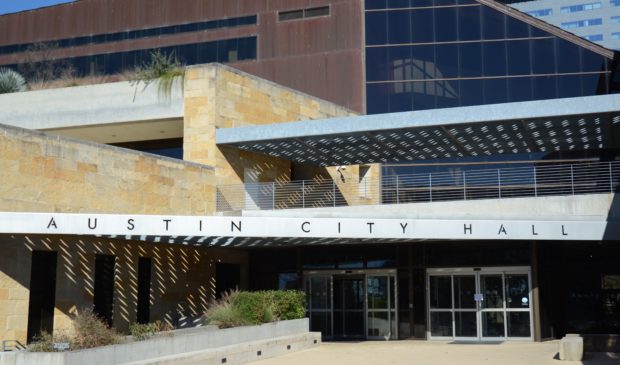BoA fee adjustments cause high tempers
Wednesday, October 10, 2018 by
Jessi Devenyns On Oct. 1 of this year, the Development Services Department enacted a new set of fees for those looking to come before the Board of Adjustment to have the board hear their applications for a code variance.
Although increases are to be expected as Austin grows, this year’s fees associated with appearing before the board nearly doubled from 2017, making zoning and sign variance fees $3,230.24 instead of $1,782.56.
The fees, according to Development Services financial manager Meredith Quick, are based on a combination of staff time, hearing notification fees, and a 4 percent Development Services technology fee associated with running the board’s monthly hearings.
“I don’t really see a justification why the fees have to be doubled,” said Board Member Michael Von Ohlen at the Oct. 8 meeting of the Board of Adjustment.
According to Quick, the fees are significantly higher this year due to an inflated case volume used in the fee calculator for last year. When Development Services corrected the caseload volume for Fiscal Year 2018-19, the fees proportionately increased to allow for the same amount of revenue. “(It was) a nuance that was unfortunate,” Quick told the Austin Monitor. She explained that the anticipated work change for the board went from “7,107 units to 5,022.”
From the outside, however, the numbers mean more than digits on an Excel spreadsheet. At the meeting, Board Member Rahm McDaniel noted that many of the residents he represents do not understand the sharp fee hikes either. “A couple weeks ago someone mentioned to me that they felt the fees involved in zoning variances, in particular … had effectively taken this venue out of play for middle-class people in our city,” he said.
Other board members agreed with the sentiment that this year’s fees were too high and put a financial barrier between many residents and their ability to appear before the Board of Adjustment.
Senior planner Leane Heldenfels noted that payment is not the only option and that there is an exception to circumvent the fee structure. “(City) Council has allowed for single-family zoning … to get 80 percent of Travis County owner signatures in lieu of the fee,” she said. Those who would need to sign the petition of support for the potential variance are affected property owners within 300 feet of the home for which a variance is being requested.
Still, Board Member Eric Goff told the Austin Monitor that this workaround requirement can also be prohibitive. He explained that if someone owns 40 percent of the land next to the property that requires a variance and they don’t agree with the proposal they can block a homeowner from coming before the board if they are unwilling or unable to pay the fee.
Even those who do pay the fees and come before the board often incur further financial burden because of the need to hire consultants “because it is a very convoluted system,” said Board Member Michael Von Ohlen.
“I just feel like in some cases we’re putting an undue burden on a homeowner,” said Board Member Brooke Bailey.
To underscore the effect that a homeowner’s ability to come before the board has on fees, Chair William Burkhardt noted that last year the board listened to a reduced number of cases and the result is that fees for this fiscal year are “commensurately more expensive.”
The catch-22 is that although the city requires a certain budget to allow staff to work on cases, the more expensive the fees become in order to fund the system, the less people are able to afford them.
“I think we need to be conscious of the fact that we do more here than serve Lake Austin cases … and 3,300 bucks is a pretty good chunk of change,” said McDaniel.
Von Ohlen took up the discussion on fairness and noted that the city should invest in programs that, although they may not be highly visible, impact the average citizen more so than a soccer field or the Hotel Occupancy Tax. As it stands, instead of paying for average homeowners to keep their homes up to code and livable, “I’m going to be paying taxes for a soccer stadium that I’m never going to go to,” he said.
While these fees were already passed in the new budget, the board agreed that they need to be reduced and formed a working group to determine the appropriate fees that the city should charge applicants. It will have a fee schedule recommendation at its November meeting.
Board Member Don Leighton-Burwell noted that it is the government’s job to make sure that the system is fair, and that does not always mean that it is fair to the government. “There are times that government as a body does what’s right as opposed to doing what makes economic sense,” he said.
Photo by John Flynn.
The Austin Monitor’s work is made possible by donations from the community. Though our reporting covers donors from time to time, we are careful to keep business and editorial efforts separate while maintaining transparency. A complete list of donors is available here, and our code of ethics is explained here.
You're a community leader
And we’re honored you look to us for serious, in-depth news. You know a strong community needs local and dedicated watchdog reporting. We’re here for you and that won’t change. Now will you take the powerful next step and support our nonprofit news organization?






